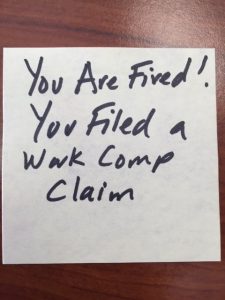According to Fla. Stat. 440.13(2)(f), “Upon the written request of the employee, the carrier shall give the employee the opportunity for one change of physician during his course of treatment for any one accident. Upon granting of a change of physician, the originally authorized physician in the same specialty as the changed physician shall become de‑authorized upon written notification by the employer or carrier. The carrier shall authorize an alternative physician who shall not be professionally affiliated with the previous physician within five (5) days after receipt of the request. If the carrier fails to provide a change of physician as requested by the employee, the employee may select the physician and such physician shall be considered authorized if the treatment being provided is compensable and medically necessary.
As of late, there has been some controversy as to whether the physician must be in the same specialty as that of the treating physician. As you will note from the Statute, same does not contain any requirement whatsoever that the one-time change must be in the same specialty. In fact, said issue was recently addressed in Edwards v. Miami-Dade County Public Schools, OJCC #15‑009693CMH. In Edwards, Judge Hill ruled that Fla. Stat. 440.13(2)(f), does not require the Claimant to first prove as a condition precedent to the operation of this subsection, that all the proposed treatment be within the same medical specialty.
As you will note, in the most recent case, it is evident that the Statute is devoid with regard to specific language pertaining to whether the one-time change must be within the same specialty. As such, it is our position that once a one-time change has been made, the Claimant may be free to choose any specialty and may not compelled to change to the same specialty.
 Florida Injury Attorneys Blog
Florida Injury Attorneys Blog








 Section 10 of the
Section 10 of the